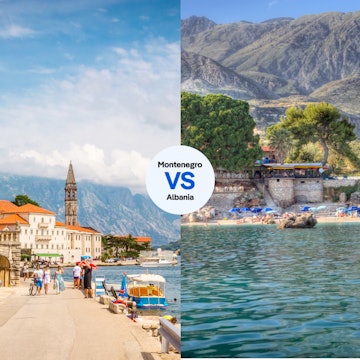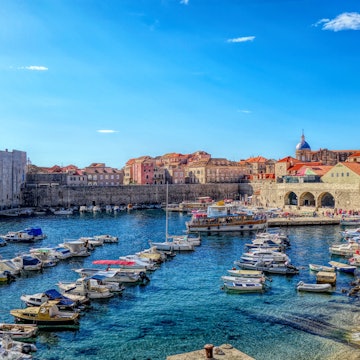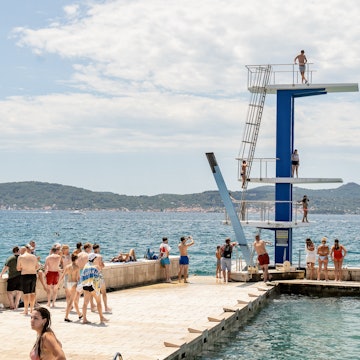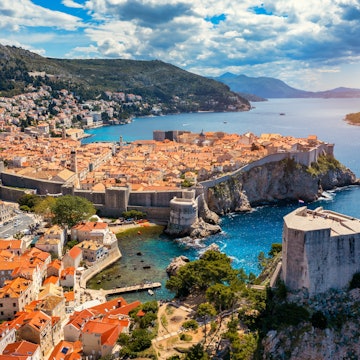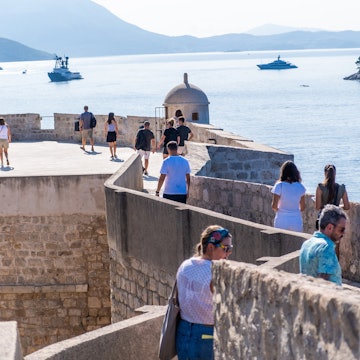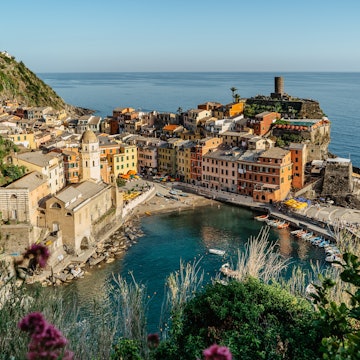
The 7 best parks in Dubrovnik: a guide to the city's green spaces

Jun 11, 2022 • 5 min read
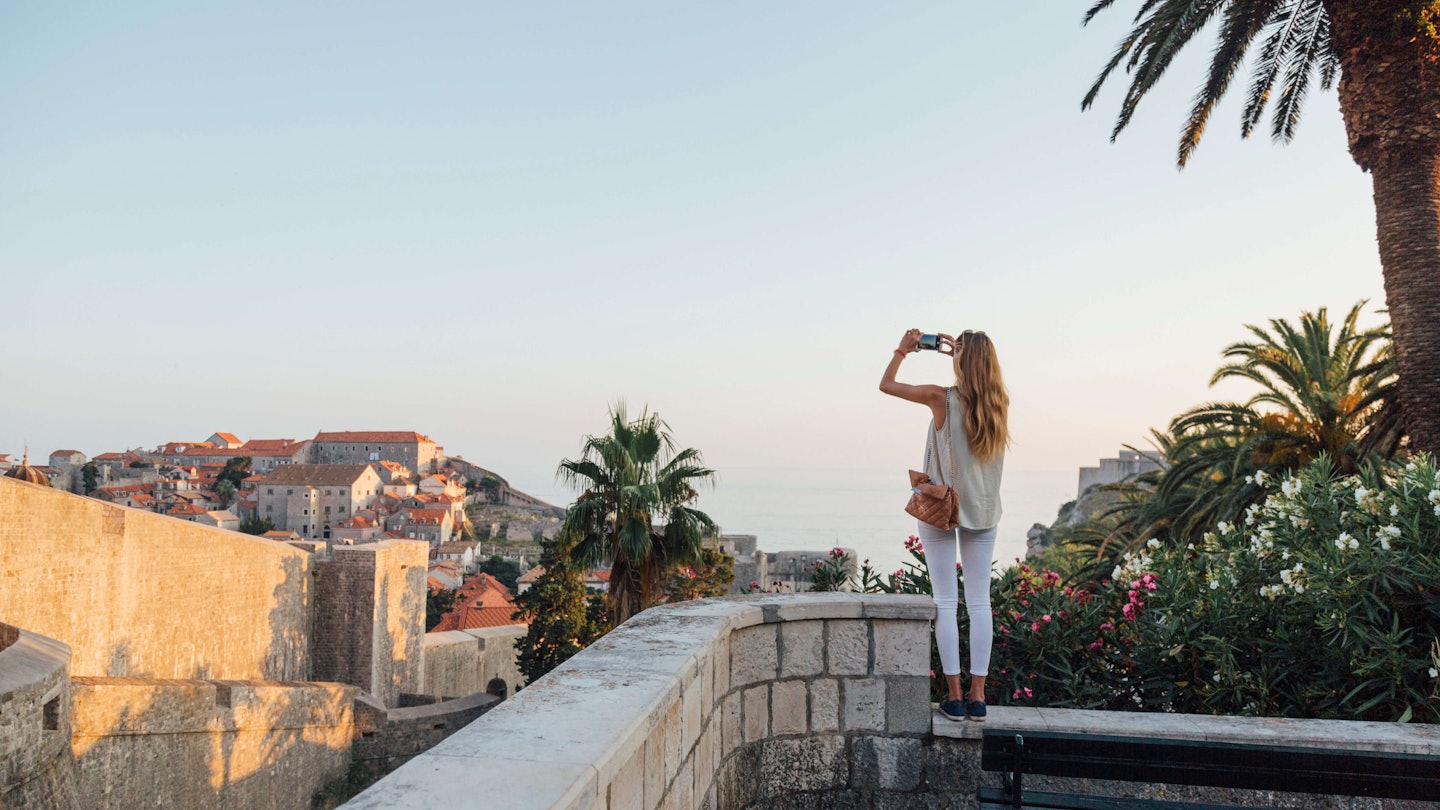
Dubrovnik's parks seem to be hidden away, sometimes in the most obvious yet well-concealed spots © Hello Lovely / Getty Images
Most visitors swarm to Dubrovnik’s exquisitely preserved old town, set within its UNESCO-listed city walls. But at some point, you’ll want to escape the tourist crowds and the Mediterranean sun, and retreat to one of the city’s quiet green spaces, historic gardens or leafy parks.
This is a small city with loads of green cover, thanks to its many towering Aleppo pines, orange trees and fragrant hedges of pittosporum. But stumbling upon a park in Dubrovnik isn't exactly child’s play – its parks seem to be hidden away, sometimes in the most obvious yet well-concealed spots. Here's where to find them.

Take a quiet stroll through Gradac Park
Just a few minutes’ walk from the old town lies this green hideaway, tucked on a cliff's edge overlooking the Adriatic Sea. Gradac Park is perfect for a spot of quiet contemplation, a solitary walk or a romantic stroll. The melody of birdsong, pigeons cooing, waves lapping at the shore, tolling bells of the monastery church below and crunching gravel underfoot provide a soothing natural soundtrack.
The shady walking paths are lined with scented pittosporum, majestic cypresses and Aleppo pines, many of which were planted at the park's inception in 1898. Well-trodden paths criss-cross this green oasis, sometimes leading to crumbling stone walls of abandoned ruins. It's wild and neglected in parts, but a renovation plan is in the works for this urban haven.

Catch a concert in Orsula Park
Little more than 2km (1.4 miles) down the road heading east from the city center is a popular cliffside viewpoint with a sweeping vista over Dubrovnik’s old town and Lokrum island. But few who stop here to take a selfie notice the modest sign to Orsula Park, or its entrance gate hidden behind the drinks kiosk.
From there, a path winds down the cliff to a semicircular amphitheater with a stone seating area and a panoramic view that's truly spectacular – the perfect backdrop for a picnic among the olive trees, conifers, fig trees, and broom shrubs, as well as a magical venue for summer concerts.
An age-old walking route stretches from the semi-restored ruins of the 14th-century St Orsula’s chapel towards the old town, a 25-minute stroll away. In the past, travelers would say a prayer at the chapel before entering or leaving the city.
Bring binoculars for birdwatching at Velika & Mala Petka Forest Park
Named after its two hills, Velika (big) & Mala (small) Petka, this park spans an area of 43 hectares (106 acres) on the southern end of the Lapad peninsula, northwest of the old town. The park is almost entirely covered by the soaring Aleppo pines it was created to protect, as well as evergreen oaks, a few wild olive trees and low-lying Mediterranean shrubs.
Look closely and you may spot morning glory and primrose growing among the thickets. The park’s dense vegetation is a habitat for songbirds, thrushes, chaffinch and goldfinch, making this urban sanctuary a draw for birdwatchers.
You’ll see locals walking their dogs along the shady paved and gravel paths, a morning jogger or two and groups of walkers following the marked hiking trails. A paved path winds up to Velika Petka, where you’ll be rewarded with a dramatic visual tableau of Lapad Bay and Srđ hill.
Let the little ones play at Pile Park
In the shadow of Dubrovnik’s massive city walls in a former moat is a children’s playground – the perfect spot for kids to let off some steam on the swings and slide after a day of sightseeing, while parents relax on the park benches.
Reach Pile Park via a stone staircase, just left of the footbridge leading to Pile Gate. On the other side of the footbridge is a leafy section shaded with orange trees and the ever-present shrubs of pittosporum. Decorating the park at one end is an elegantly sculpted stone fountain, while a gateway in the wall leads to Pile Gate and the Stradun, the old town’s main pedestrian street.
Take a break from the bustle in Bogišićev park
If you park at Ilijina Glavica, the city’s main parking lot, you’ll stroll through this wooded park on your way down to the old town. Look for a fenced children’s playground just a few steps away; from there, Bogišićev park continues down a slope.
A plaque reveals that the park was established in 1913. It offers a calm and peaceful respite from the tourist bustle, with the city’s signature Aleppos providing shelter from the sun. Lining the stone walking paths are hedges of oleander, laurel and fragrant pittosporum. As you make your way downhill you’ll catch glimpses of terracotta rooftops and St Lawrence Fortress – for Game of Thrones fans, the Red Keep in King's Landing.
See hundreds of species of exotic plants at Lokrum's botanical garden
The tiny island of Lokrum floats tantalizingly close to Dubrovnik and is easily reachable via a regular ferry service. Designated a Nature Reserve and a Special Forest Vegetation Reserve since 1975, the whole car-free island is a flora-rich park in itself, with 800 species of exotic plants and dense forests of Aleppo and black pines, cypresses and Mediterranean oaks.
Lovers of plants and flowers will enjoy ambling through the botanical garden on the eastern end of the island. Archduke Maximilian I of Habsburg planted its first trees in the 19th century, after he bought the island, and imported many plants from the Canary Islands. Most of its trees are lofty Australian eucalyptuses, but you’ll also find palms, yuccas, acacia and a collection of cacti, among others.

Stage a Game of Thrones photoshoot at Trsteno Arboretum
Located 19km (12 miles) up the coast from Dubrovnik, this magical green space will be familiar to Game of Thrones fans as the gardens of King’s Landing, where the Tyrells shared secrets and plotted their next moves.
The 15th-century Trsteno Arboretum is the oldest of its kind in Croatia. It has an ethereal feel about it, maybe because it’s not overly tended and just wild enough to make it feel other-worldly.
Among the 300 species of trees and plants growing in this dense, 25-hectare (63-acre) garden are lindens, bay laurels, Aleppo pines, cypresses, hornbeams, Japanese palms and bamboo. Each tree is identified with a small plaque detailing its name, origin, diameter, height and age. You’ll notice that many are centenarians, and the oldest is more than 150 years old.
A popular landmark is the baroque fountain, presided over by a lofty statue of Neptune, the Roman god of waters and seas. Look closely among the waterlilies and you’ll spot goldfish, frogs and turtles.








